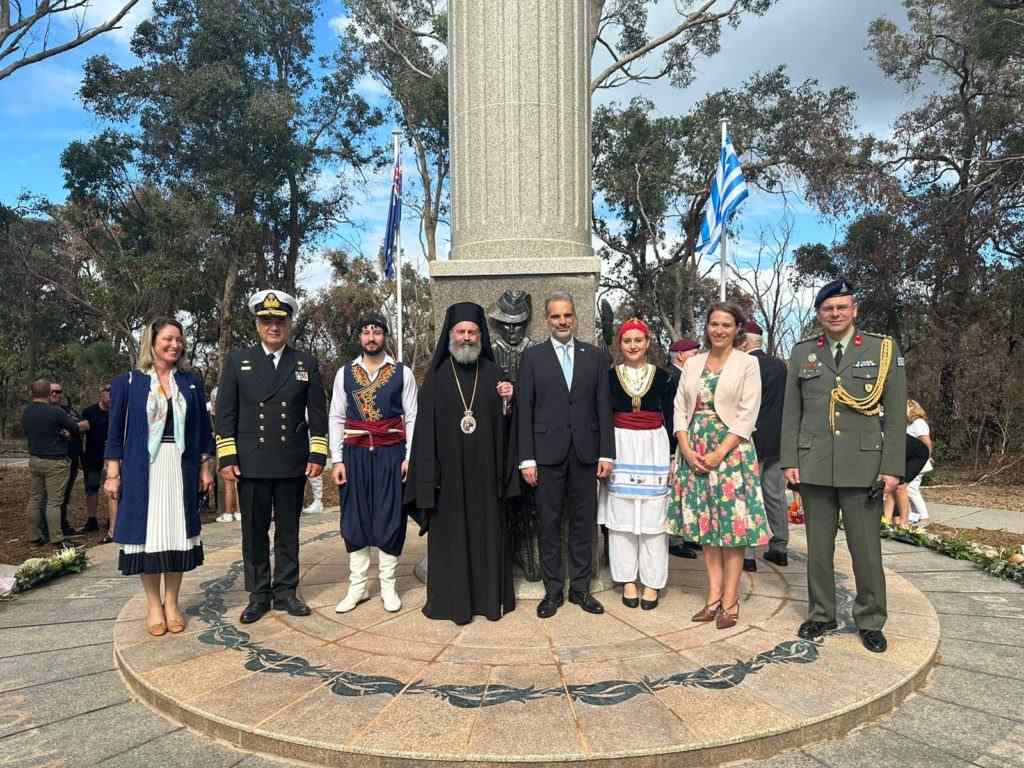Eighty-four years after the legendary Battle of Crete, a group of Greek-Australians is set to embark on a remarkable journey, retracing the retreat of the ANZAC forces in May 1941. Their mission is to pay tribute to the soldiers who fought in defense of a foreign land thousands of kilometers from home and to support a charitable cause close to their hearts.
Over the course of five days, the group will trek 100 kilometers, following the exact path taken by Australian and New Zealand soldiers as they retreated from the advancing German forces. Their journey will start in the village of Maleme and conclude in Hora Sfakion, Chania, echoing a chapter of history that remains deeply moving for many in Australia.
The Battle of Crete holds a special place in Australian memory. Many ANZAC soldiers who could not escape the island found refuge in the homes of Cretan villagers, their stories forever etched in history.
Others made the ultimate sacrifice, resting beneath Greek soil. The significance of this battle was recognized in Australia when the country’s Reserve Bank issued a 50-cent coin commemorating the event.
However, the Greek-Australians undertaking this journey are not only honoring history; they are also walking for a cause. They are members of “Wish You Were Here,” an organization dedicated to fighting cancer. Through this symbolic expedition, they aim to raise funds for Pankind, the Australian Pancreatic Cancer Foundation, supporting research into early detection and treatment of pancreatic cancer.
The team includes cancer survivors and relatives of those lost to the disease. They organize physically demanding treks as a tribute to the struggles faced by pancreatic cancer patients. In 2017, they completed a similar journey in Papua New Guinea, raising over 200,000 euros through their hike and a fundraising dinner.
Con Kanellis, a member of “Wish You Were Here,” has a deep connection to Greece and its history. “I was born in Greece, with roots in Crete, and I have a passion for Greek history and culture,” he told Nea newspaper. He recounted how their trek in Papua New Guinea introduced them to the military campaign fought there between Australian and Japanese forces in 1942.
Further research led him to an unexpected discovery—the same Australian 6th Division that fought in Papua New Guinea had previously been deployed in mainland Greece and Crete.
“The more I read about these incredible human beings, the more I felt compelled to honor their sacrifice,” Kanellis said.
“What better way to do so than through an epic trek across Crete? This May, seven of us will travel to Crete and walk 100 kilometers from Maleme to Hora Sfakion, following the grueling escape route taken by the ANZAC soldiers in 1941. It is difficult for us today to comprehend how harsh that retreat was. The Battle of Crete was brutal and had devastating consequences. In some ways, it mirrors the fight that pancreatic cancer patients endure—except their chances of survival are even lower than those of the soldiers in 1941.”
A Personal Fight
For Kanellis, the mission is deeply personal. “‘Wish You Were Here’ began in 2013 when I was lying in a hospital bed for nearly seven hours receiving chemotherapy for stage 4 metastatic laryngeal cancer.
What felt like a death sentence at first became the catalyst for a transformation in my life,” he shared. “I felt incredibly fortunate to have survived cancer, unlike my father, uncles, and other loved ones. That feeling drove me to find ways to give back.”
He soon began organizing charity events, but when his best friend, Nick Stamatakis, was diagnosed with pancreatic cancer, the idea for “Wish You Were Here” truly took shape. “Our goal is to raise awareness about pancreatic cancer, which is often diagnosed too late, leading to low survival rates,” Kanellis explained.
“At the same time, we want to highlight the strong ties between Australia and Greece, forged through campaigns like Gallipoli and the Battle of Crete.”
Kanellis emphasized that their fundraising efforts mainly support Pankind in Australia but expressed openness to partnering with Greek cancer charities. “We’re not asking for donations from Greece for an Australian cause,” he said. “But we’d love to collaborate with local initiatives. It would be amazing if Cretans or Greeks from other areas joined us for the walk—imagine hundreds walking together for this cause.”




